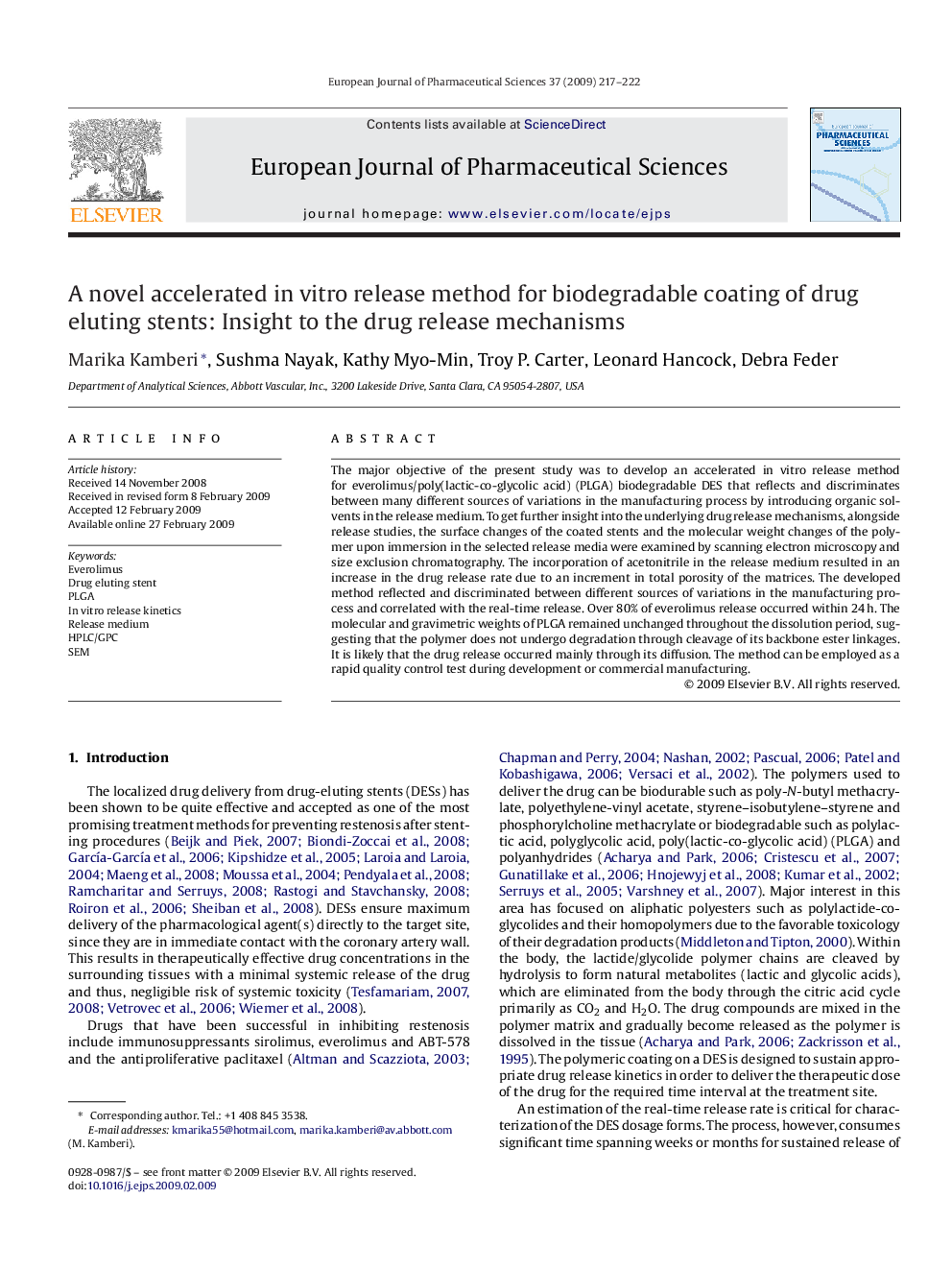| Article ID | Journal | Published Year | Pages | File Type |
|---|---|---|---|---|
| 2481673 | European Journal of Pharmaceutical Sciences | 2009 | 6 Pages |
The major objective of the present study was to develop an accelerated in vitro release method for everolimus/poly(lactic-co-glycolic acid) (PLGA) biodegradable DES that reflects and discriminates between many different sources of variations in the manufacturing process by introducing organic solvents in the release medium. To get further insight into the underlying drug release mechanisms, alongside release studies, the surface changes of the coated stents and the molecular weight changes of the polymer upon immersion in the selected release media were examined by scanning electron microscopy and size exclusion chromatography. The incorporation of acetonitrile in the release medium resulted in an increase in the drug release rate due to an increment in total porosity of the matrices. The developed method reflected and discriminated between different sources of variations in the manufacturing process and correlated with the real-time release. Over 80% of everolimus release occurred within 24 h. The molecular and gravimetric weights of PLGA remained unchanged throughout the dissolution period, suggesting that the polymer does not undergo degradation through cleavage of its backbone ester linkages. It is likely that the drug release occurred mainly through its diffusion. The method can be employed as a rapid quality control test during development or commercial manufacturing.
